Elevate your local knowledge
Sign up for the iNFOnews newsletter today!
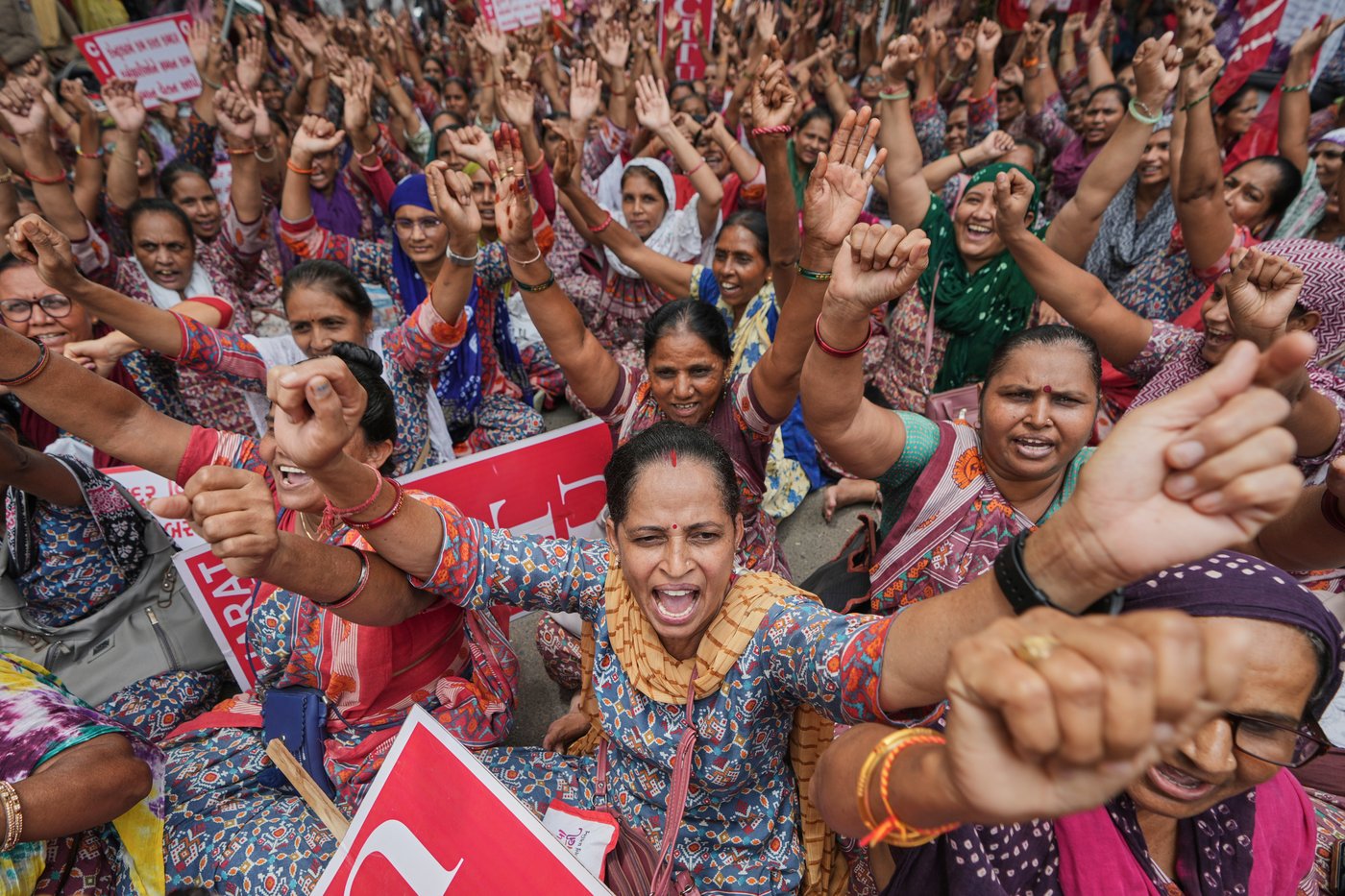
NEW DELHI (AP) — Hundreds of thousands of workers across India went on a nationwide strike on Wednesday in opposition to Prime Minister Narendra Modi’s efforts to privatize state-run companies and other economic reforms, partially disrupting public services and manufacturing.
A coalition of 10 major trade unions that represent laborers and several other groups that speak for farmers and rural workers called for the one-day industrial action, dubbing it Bharat Bandh,” Hindi for “Shut Down India.”
The strikes pose fresh challenges for Modi’s efforts to attract foreign companies by easing labor laws to streamline business operations and boost productivity.
Unions that helped organize the strikes say that coal mining operations were halted in several states while some trains came to a grinding halt as protestors blocked the network, and that banks, insurance companies and supermarkets were disrupted.
An Associated Press photographer in the eastern city of Kolkata saw protestors walking in a rally at a local railway station, some shouting slogans against the government and burning an effigy of Modi. Another, in the financial capital Mumbai, witnessed bank employees shouting slogans against the privatization of state-run banks.
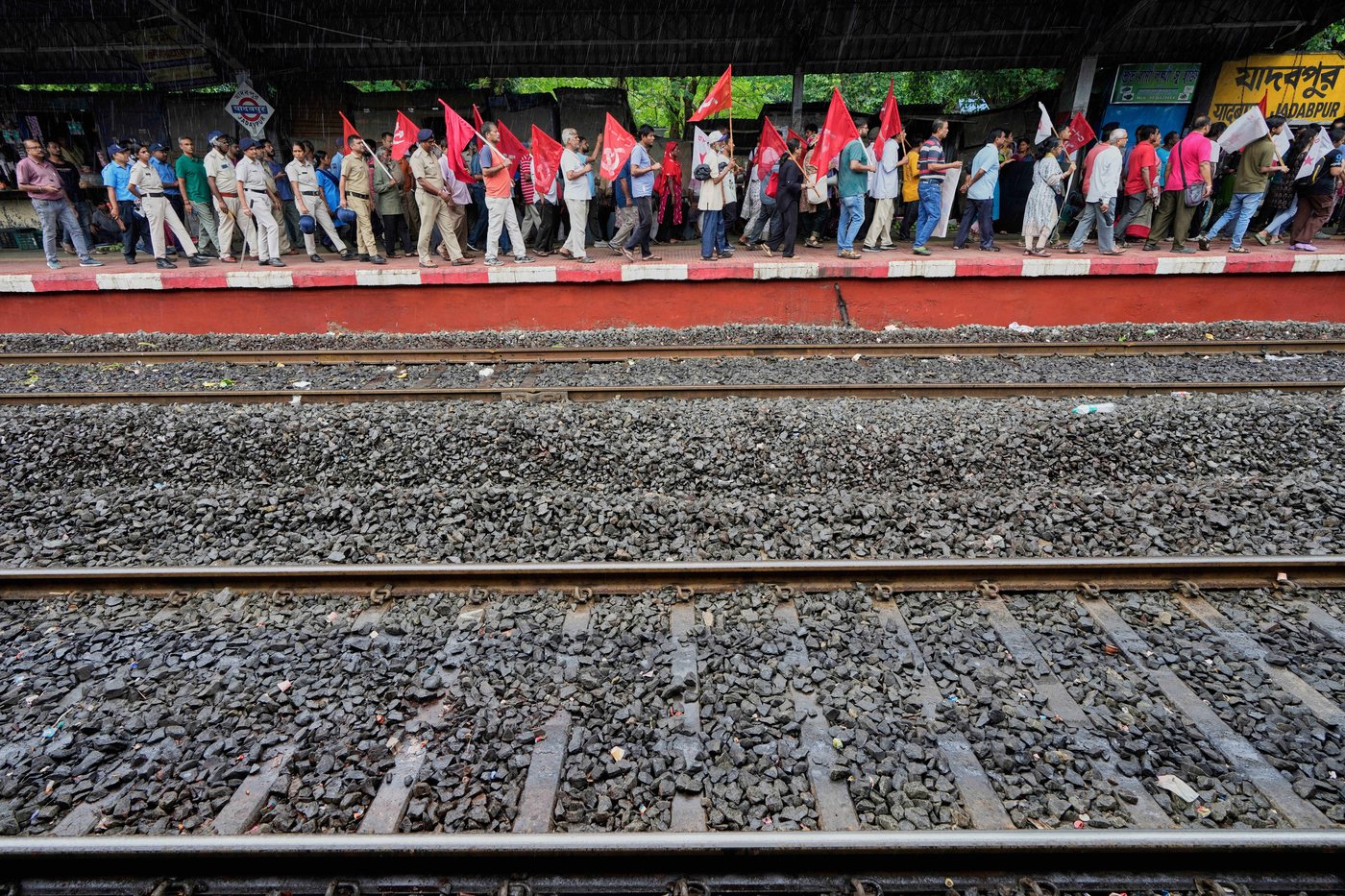
The Press Trust of India reported traffic in eastern India’s Odisha state was halted in some areas, while in the southern state of Kerala, shops, offices and schools remained closed, with roads looking deserted.
In New Delhi, protesters carried placards demanding scrapping of the labor laws and chanted slogans like “Stop selling our railways” and “Don’t infringe upon trade unions rights.”
“You can be fired any day from work. Your labor has no value in this country and in this society,” said Aishe Ghosh, a student activist.
Ghosh said a lot of migrant laborers and workers move from their villages to work elsewhere, and they are thrown out of jobs arbitrarily. “The government never realizes how much the workers have to suffer because of this,” she said.
Maimoona Mollah, another protestor, said the government should work for the rights of workers and create more formal job opportunities than contractual.
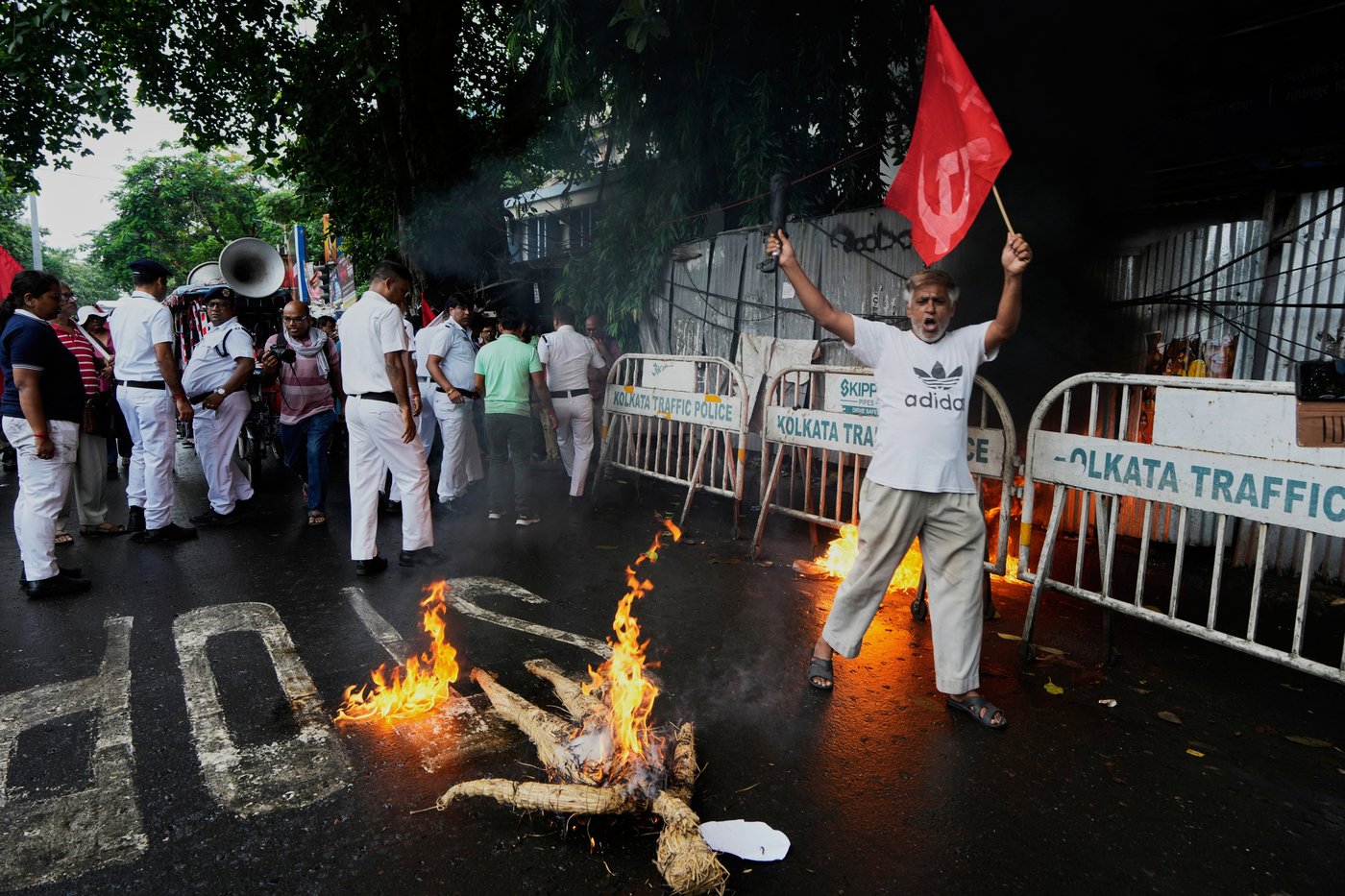
Rajendra Pratholi, an activist from the Communist Party of India (Marxist-Leninist) that is associated with key trade unions, accused the government of snatching the benefits of workers on the pretext of reforms.
“Working hours of laborers, and the benefits they used to get in their jobs after years of struggle, all those benefits have been given away to the capitalists and industrialists by the government,” Pratholi said, without elaborating.
The government hasn’t formally commented on the strike. It usually dismisses assertions made by the unions.
The workers’ demands include higher wages, halting privatization of state-run companies, withdrawal of new labor laws and filling vacancies in the government sector. The farmers’ groups also want the government to increase the minimum purchase price for crops such as wheat and rice.
Modi’s government has opened some sectors of the Indian economy to foreign direct investments and offered billions of dollars in financial incentives to attract local manufacturing. It has also aimed to bridge the budget deficit with a drive to privatize loss-making state-run companies and unveiled new labor laws that promise workers higher statutory minimum wages, social security and healthcare.
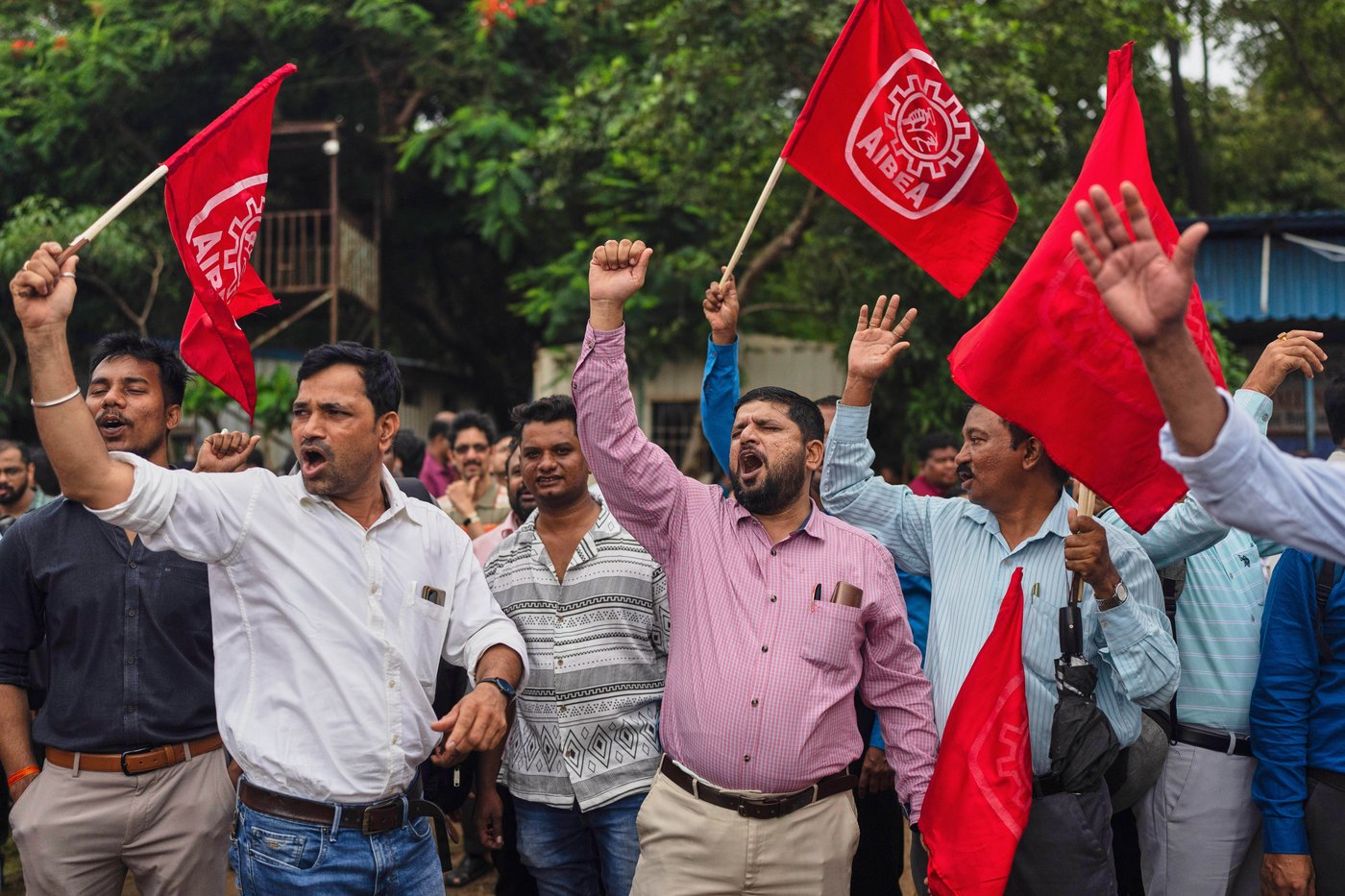
However, the trade unions aren’t convinced and want the new laws to be scrapped.
“The government intends to suppress workers in the name of ease of doing business through labor reforms,” said Amarjeet Kaur, general secretary of All India Trade Union Congress, a prominent union taking part in the strike.
Tapan Sen, general secretary of the Centre of Indian Trade Unions, or CITU, which is aligned with the communist party and a key trade union that is part of the group that called for the strike, said he got reports of protesting workers blocking several national highways and rail routes.
“Coal mining operations in most states have come to a halt. Services in banking, insurance, manufacturing and petroleum refineries are impacted too,” said Sen.
A. Soundararajan, a prominent trade union leader in the southern state of Tamil Nadu, said the police detained around 30,000 protesting workers on Wednesday. Manufacturing activities at several companies have also been hit, he said.
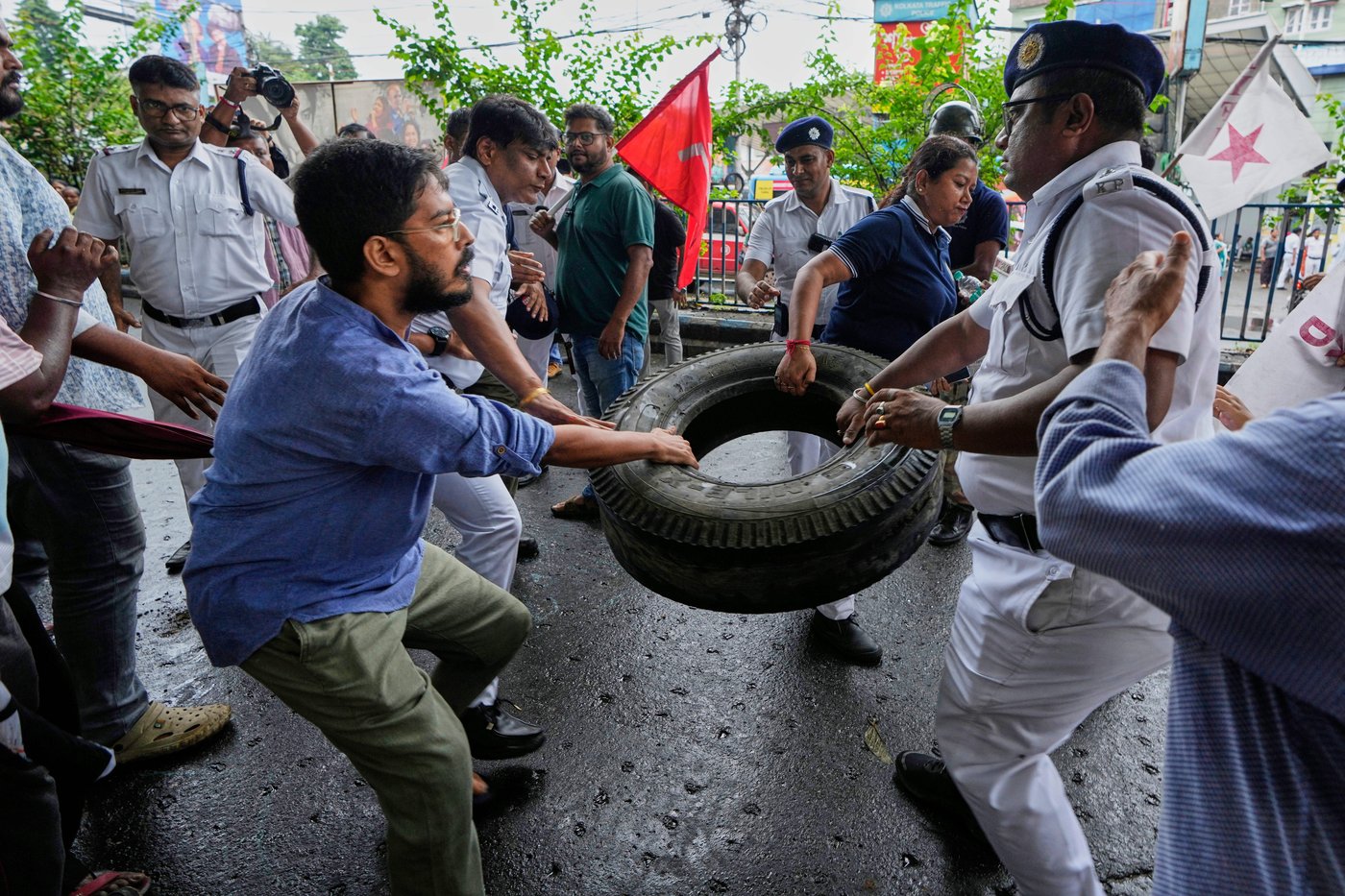
Want to share your thoughts, add context, or connect with others in your community?
You must be logged in to post a comment.